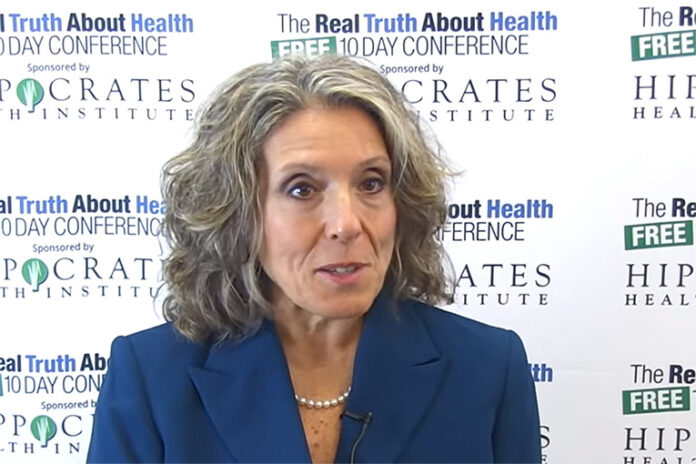The whole food vegan fraternity is often criticised for an alleged lack of protein in their diets, but US doctor Pam Popper dismisses the suggestion and says misunderstandings about protein go back a long way.
In an interview at a 10-day health conference in New York earlier this year, she said the protein issue is often linked with the deficiency issue.
“People think we are deficient in everything, which is why people take so many dietary supplements. Furthermore, the idea is that a little bit of something is a good idea. Lots of it has got to be better, right?”
Dr Popper believes that the importance of protein has been overemphasized.
“Really, human protein needs are very low and, in fact, as little as 2.5% of calories for adults which means that it’s mathematically impossible to eat a diet that provides no calories, everyday, that does not also provide enough protein.
“If you were to live on the lowest-protein foods you can possibly eat, which would be things like rice or potatoes, which have eight or nine per cent calories and protein, then you would have enough protein. You don’t need any more than that.”
She says she’s not suggesting people actually do this “but the point is that, if it’s enough calories every day, you will eat enough protein.”
As a student of medical history, Dr. Popper believes the misunderstandings about protein date back to the time it was first discovered.
“It was really the first nutrient isolated from food, so if you don’t know that there are hundreds of thousands of others, you might think that your discovery is a little more important, but, from the beginning, protein was over-emphasised in its importance.
“It’s very interesting because if you track through medical history you have these dual tracks. You have these proteins, more protein is good and you can’t get enough of the stuff. And then, right along in parallel is research study after research study showing that eating so much protein is not a good idea.”
She says, in this duelling narrative, the high protein folks won.
“If you consume too much animal protein, you increase your risk of cardiovascular disease and cancer a lot. If you consume too much protein from any source … eventually you can blow out your kidneys so it’s a dangerous practice in many ways.”
Time slot breakdown
Here are some of the key questions covered in Dr Poppa’s 1hr 20min interview. The interview has been set to commence at the first time slot. The following time slots have been added to show the range of questions covered.
Time: 4.42
Don’t we need protein to build muscle?
Time: 8.20
The difference between plant and animal protein
Time: 19.29
On the cause of multiple sclerosis
Time: 30.05
Why fish is not a healthier form of animal food.
Time: 37.10
How a vegan diet helps Hep C patients.
Time: 44.41
On the influence of the food and pharmaceutical industries
Time: 1.04.43
On the value of tests like colonoscopies, mammograms etc
Time: 1.09.35
The risks of having a mammogram
Time: 1.10.55
The overuse of CT scans
Time: 1.14.54
Why clinical studies should be viewed with scepticism
Time: 1.16.49
How lifestyle and diet contributes to diabetes
Time: 1.18.45
On the effectiveness of drugs and surgery in cardiovascular disease.






